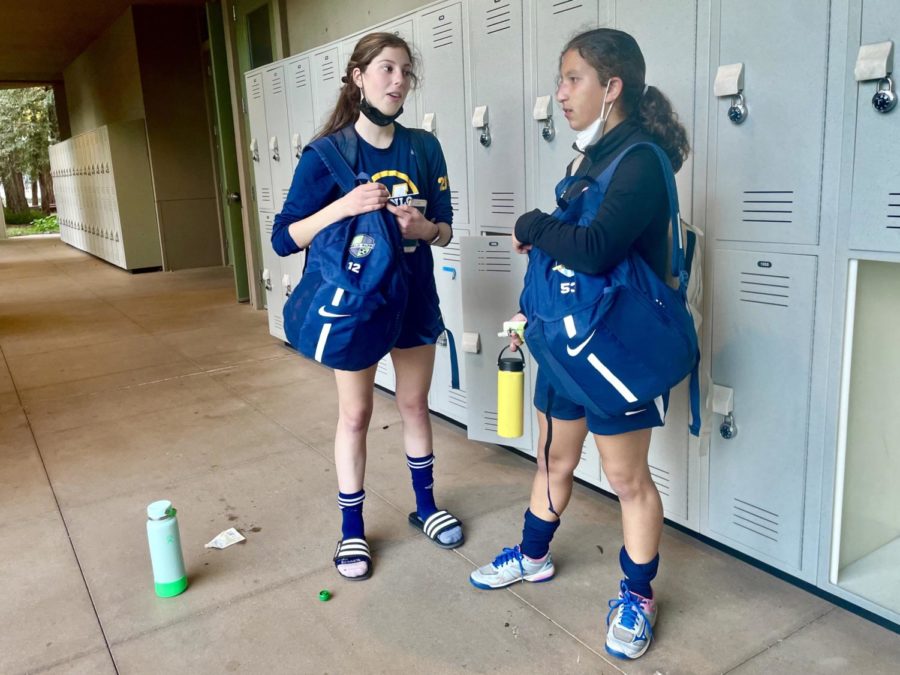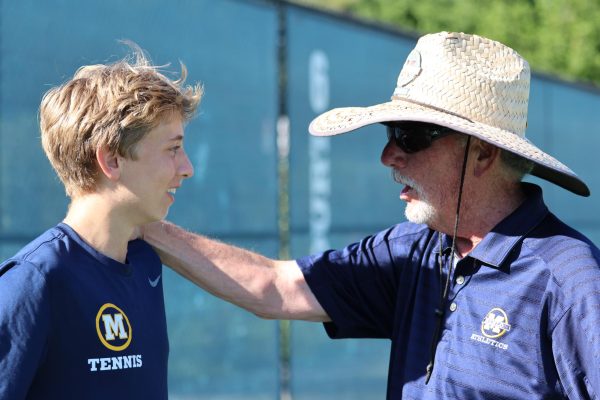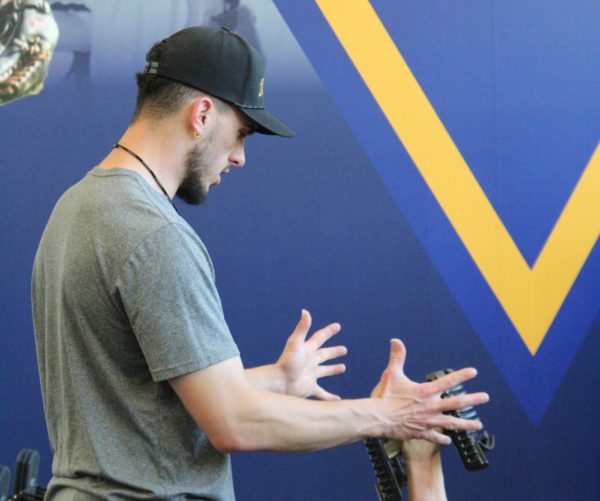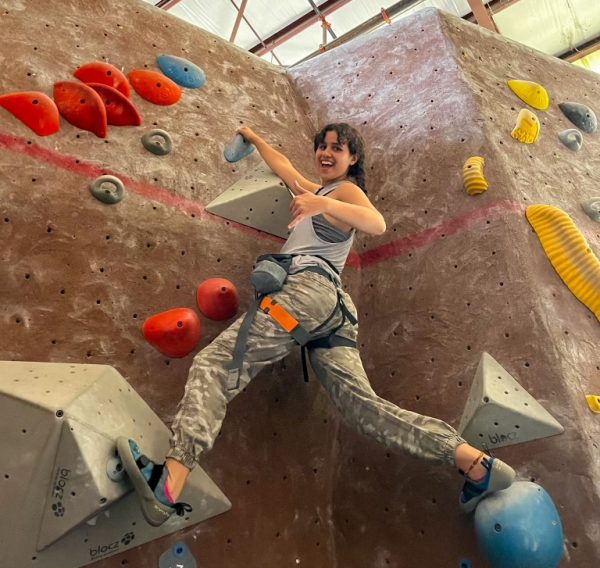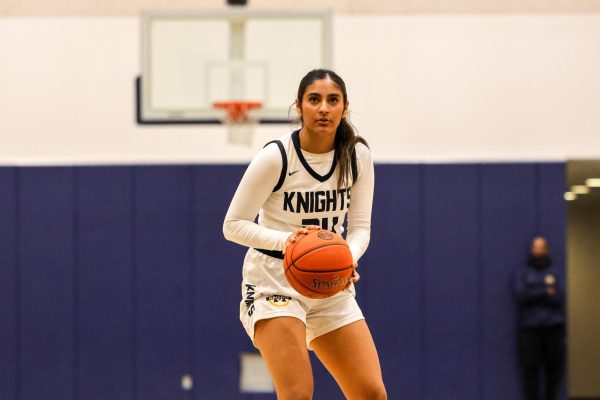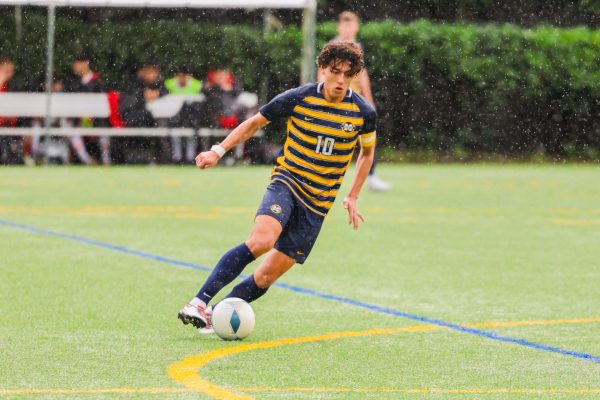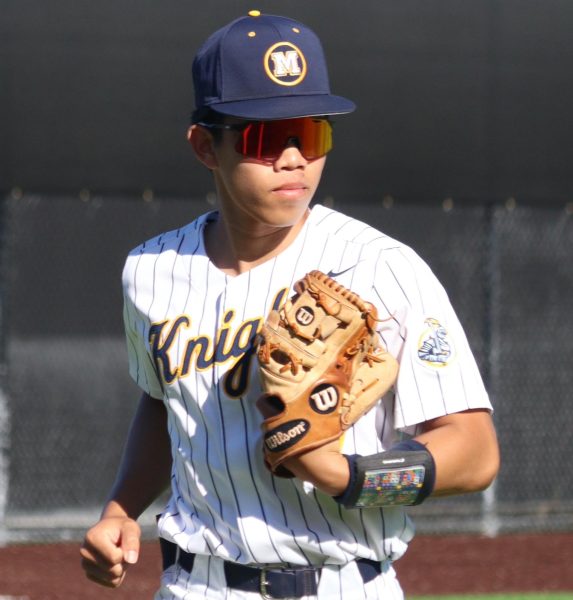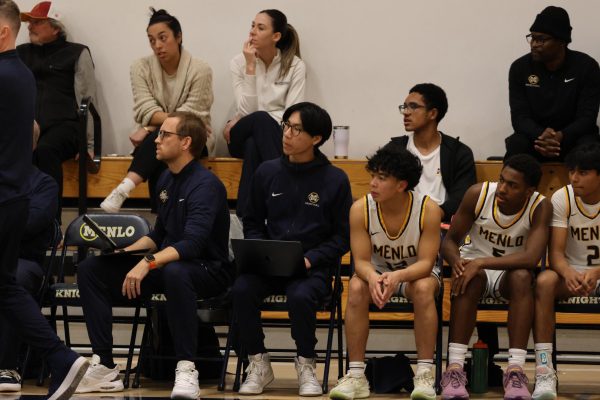Menlo Varsity Athletes Reflect on the Student-Athlete Experience
Freshman varsity soccer players Amelie Giomi and Roya Rezaee stand by the lockers after their daily practice after school, talking about their practice schedule for the following week. Staff photo: Izzy Klugman.
February 18, 2022
Menlo School is infamous for its challenging academic load, and playing a varsity sport can add yet another burden for students. Yet, somehow they manage to do so in and out of the school sports season, so how do they do it? Various varsity athletes reflect on their experiences managing the two.
The Problems
The hardest aspect of playing a varsity sport on top of being a Menlo student is managing time effectively, according to junior baseball player Trey McNair. “I think every athlete kind of knows that managing schoolwork and sports simultaneously is really difficult. I think especially based on how much academic rigor you have, it gets harder,” McNair said.
Many of these athletes also miss classes in order to participate in games, according to sophomore soccer player Dorothy Zhang. “In season it’s just a lot more meeting with teachers, catching up on what you missed and retaking tests,” Zhang said.
The practices and games that are part of every varsity sport are especially time-consuming, according to junior basketball and tennis player Hannah Satuito. “In addition to the two hours of practice and then the half-hour lifts every other day, I’d say it’s like three to three and a half hours because of my commute home as well,” Satuito said.
In season, many of these athletes prioritize sports much more heavily than they would out of season. “When I’m in season, it’s sports first, which annoys me a lot. But I think the team needs every one of their players to be there,” freshman soccer player Roya Rezaee said.
In addition, many of these athletes have games and practices late in the day, which shortens the amount of time they have to complete their work. “I don’t really start my homework till like 8:45 or 9, and I’m already exhausted. I had a long day. I’ve had a long practice. So it’s hard to get through homework, stay committed and disciplined and actually do it,” senior lacrosse and football player Sam Scola said.
The Sacrifices
Sacrifices have to be made, according to McNair. “I think everyone sacrifices something, whether that’s just free time or whether that’s giving up some activity. I tutor a girl at this place called the St. Francis Center in Redwood City, and I’m hoping that I can continue to do it, but there’s a chance that I’ll have to give that up,” McNair said.
Senior Brynn Brady has often felt this same level of sacrifice in her time playing tennis at Menlo. “You’re missing a ton of school, which is just really rough, especially taking lab classes[…]I took all my tutorials to go to those classes and meet with those teachers, so there’s definitely less time to do homework in school,” Brady said.
The Advice
So how do these student-athletes manage everything? For junior lacrosse player Madison Vitro, planning is especially important. “Planning ahead and knowing if you have a game and that you’re going to need to complete work for that day is important, not saving it until the last minute. Additionally, planning out your tests and studying further in advance than you would normally helps,” Vitro said.
Another helpful tip from these athletes is to take a free period. “I definitely recommend to anybody in junior or senior year to take a free period if you have a fall sport, at least for the first semester. I would say I ended up [having] a lot of late nights. I probably went to bed at 1:30 on average on nights in the fall,” Brady said.
“My free period becomes a lot more useful when I’m in season,” senior volleyball player Simone Adam said.
Focusing on sports and school simultaneously can be stressful, according to sophomore volleyball player Logan Wilson. “It’s really stressful. I like trying to manage it, but it’s really hard a lot of times because there’s just so much stuff. On top of being an athlete, I also have to be a student,” Wilson said.
In order to cope with this stress factor, freshman tennis player Cooper Han likes to focus on other things instead of school. “In the past semester, I’ve learned to just block out all the school-related things like homework when I’m playing and just focus on improving my tennis game,” Han said.
Using free time effectively helped sophomore swimmer and water polo player Patrick Galligan manage his anxiety. “Just using the free time that you do have to relax and spend time with family and just making sure to still find time for the things that you enjoy, even when you are super busy, is useful,” Galligan said.
McNair feels that it’s okay to miss a few assignments every so often. “I think it’s important to know that even if you don’t do well on something or if you don’t get this one homework assignment done, it’s not really the end of the world. I like to think on the bright side and know that, even if I don’t do well on one test, or if I don’t do well on this homework, I just gotta keep going,” McNair said.


